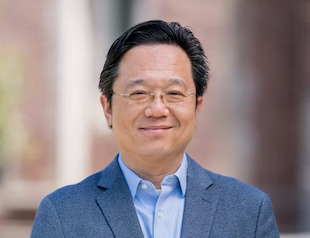Keynote Speech
Personalized Predictions of Clinical Outcomes and Treatment Response with Wearables and Machine Learning
Chenyang Lu, AIM Institute, Washington University in St. Louis
Abstract: Driven by growing adoption of wearable devices and advancements in artificial intelligence, Internet of Medical Things (IoMT) have emerged as new clinical instruments for precision medicine. Wearable devices enable unobtrusive monitoring of patients in their daily lives. To realize their potential in precision medicine, we need to develop machine learning models capable of extracting reliable clinical information from noisy and incomplete wearable data. Furthermore, the ML approaches need to scale effectively across a wide range of sample sizes. They should provide robust predictions in the presence of moderate amounts of data, while improving predictive power when large amounts of data become available. Finally, to support precision medicine, ML models need to make personalized prediction of not only the clinical outcomes of a patient but also their response to a specific treatment so that the treatment can be tailored for the patient. This talk will present our recent efforts to tackle these challenges in three clinical studies using Fitbit wristbands. 1) We built a robust feature engineering and ML pipeline tailored for wearable studies with limited sample sizes. We demonstrated the effectiveness of the pipeline in predicting post-operative complications and hospital readmissions in a prospective clinical trial of patients undergoing pancreatic surgery. 2) We developed WearNet, an end-to-end deep learning model for detecting mental disorders using Fitbit data. WearNet effectively enhanced predictive performance by exploiting a large public dataset including 8,996 participants and 1,247 diagnosed with mental disorders. 3) We explored multi-task ML to predict individualized treatment response to depression therapy based on wearable data collected from a randomized controlled trial (RCT) for patients undergoing behavioral therapy. Results from the clinical studies demonstrated the effectiveness of ML in predicting clinical outcomes in the presence of noise and missing data collected by wearables. Furthermore, ML provides a promising approach to predict individualized treatment response by leveraging data collected in RCTs. We will conclude the talk by highlighting the opportunities and directions in advancing IoMT as vital instruments for precision medicine.
Bio: Chenyang Lu is the Fullgraf Professor of Computer Science and Engineering and Professor of Medicine at Washington University in St. Louis. His research interests include artificial intelligence (AI) for medicine, Internet of Things (IoT), real-time systems, and cyber-physical systems. He is the founding director of the AIM Institute, a cross-school, interdisciplinary research hub dedicated to AI and IoT for medicine. He received the Outstanding Technical Achievement Award and Leadership Award from IEEE Technical Community on Real-Time Systems (TCRTS). He was also recognized by a SenSys Test-of-Time Award, an RTAS Influential Paper Award, and eight Best and Outstanding Paper Awards. He is currently Editor-in-Chief of ACM Transactions on Cyber-Physical Systems. He also served as Editor-in-Chief of ACM Transactions on Sensor Networks and Chair of TCRTS. He is a Fellow of ACM and IEEE.
The Future of Computing -bits/neurons/qubits–
Shintaro Yamamichi, Ph. D., IBM Research Semiconductors, IBM Japan Ltd.
Abstract: We have been facing a dramatical transformation of the IT industry, especially computing technology innovation, requested by a huge amount of computation resources for AI workload, as well as energy saving at data centers all over the world. The digital information, represented by “bits”, has created a highly advanced IT society, and transistors have been playing the main role to provide the secure, clear “0” or “1” information. Despite the breakthrough of the Fin-FET structure against the in-plane scaling limitation, more current controllability, high performance, and low power consumption are achieved by new gate-all-around nanosheet transistors. Another computational element called “neuron”, an idea of combination of biology and information, has been attracted specifically for AI workload, to decrease the power consumption drastically. One approach is to reduce the precision in the logic circuit, already implemented into the latest CPU for the mainframe capable for real time inference. Another approach is to use a non-volatile resistive material as an analog element, representing the weight of the neural network. This approach has a big challenge to integrate a new material into the current silicon process, but a chip-level integration by 14-nm technology has already been reported. The third computation element called “qubit” for quantum computer has achieved a rapid improvement and implementation, especially on a superconducting device. A high-level progress of quantum computing is also introduced.
Bio: Shintaro Yamamichi received his M.E. and Ph. D. degrees in electrical engineering, from Kyoto University, Japan in 1989 and 2002, respectively. He was involved in both semiconductor and advanced packaging process research in NEC and Renesas Electronics. He was also a visiting industrial fellow at University of California, Berkeley in 1997. In 2013, he joined IBM, the Science and Technology team in Tokyo. From 2016, He led the research projects, including quantum computer installation, AI hardware, advanced packaging, and material informatics. Currently, he is the Director, IBM Semiconductors, IBM Research -Tokyo, leading all the semiconductor-related research and development activities in Japan.

